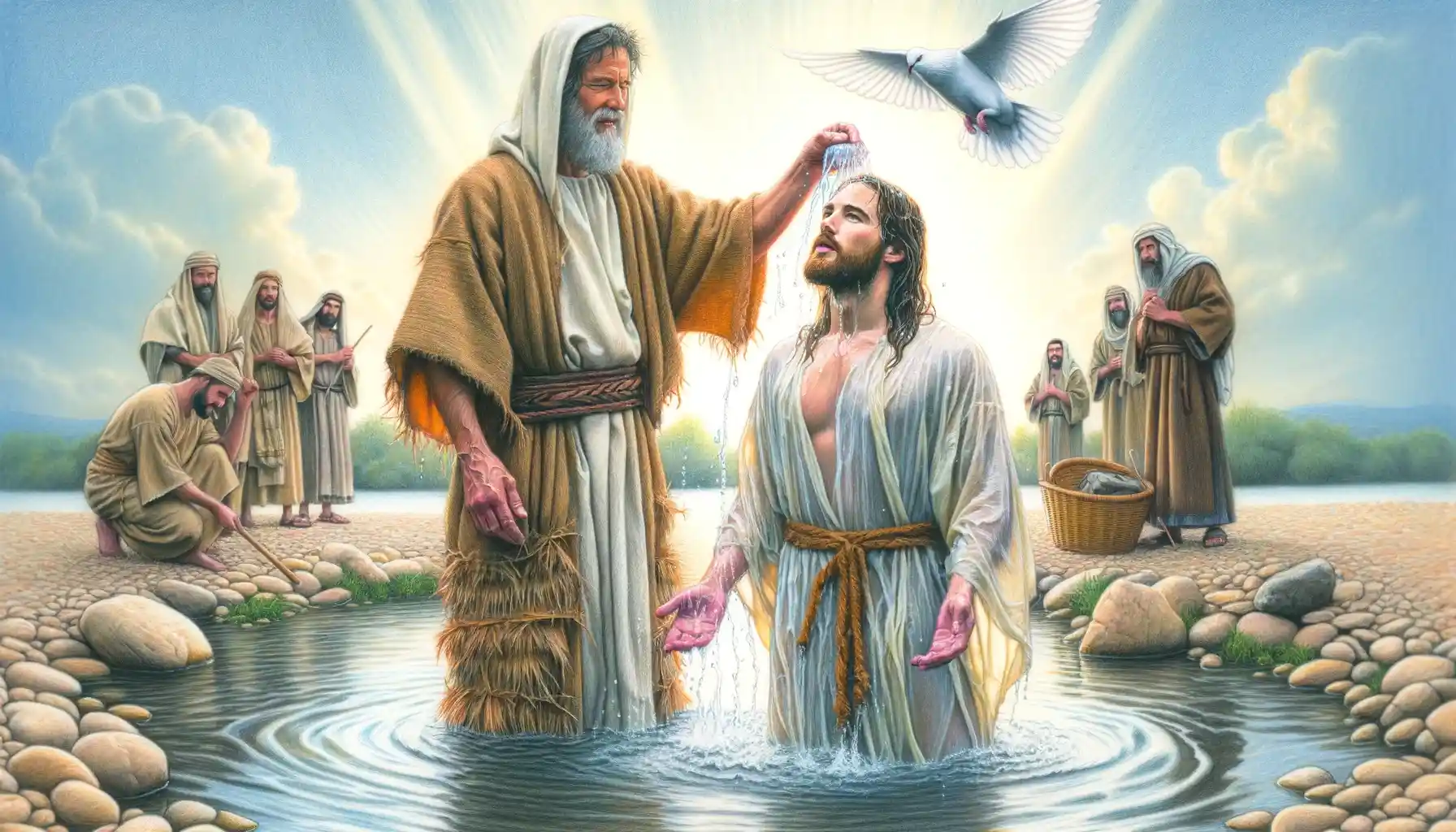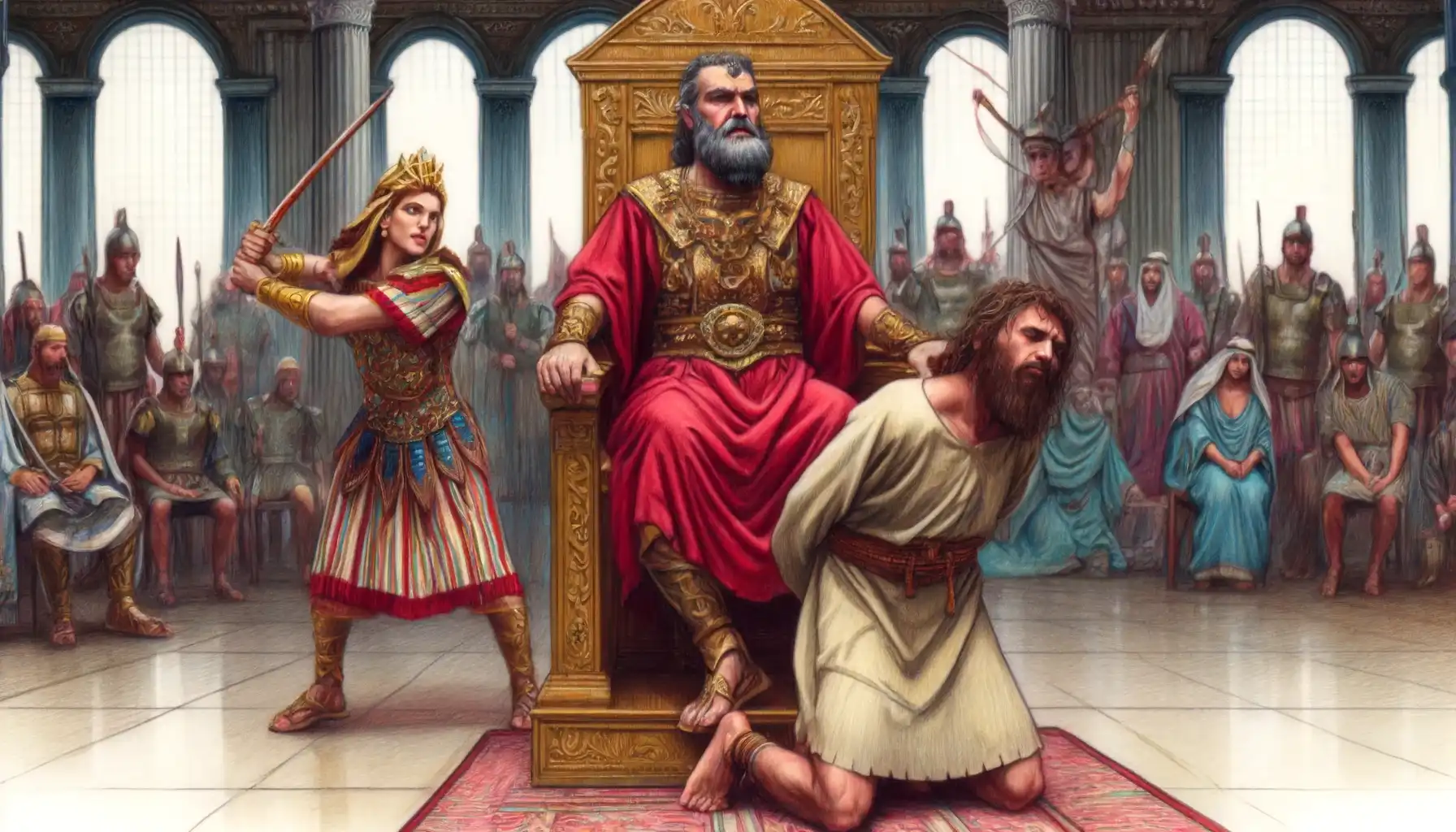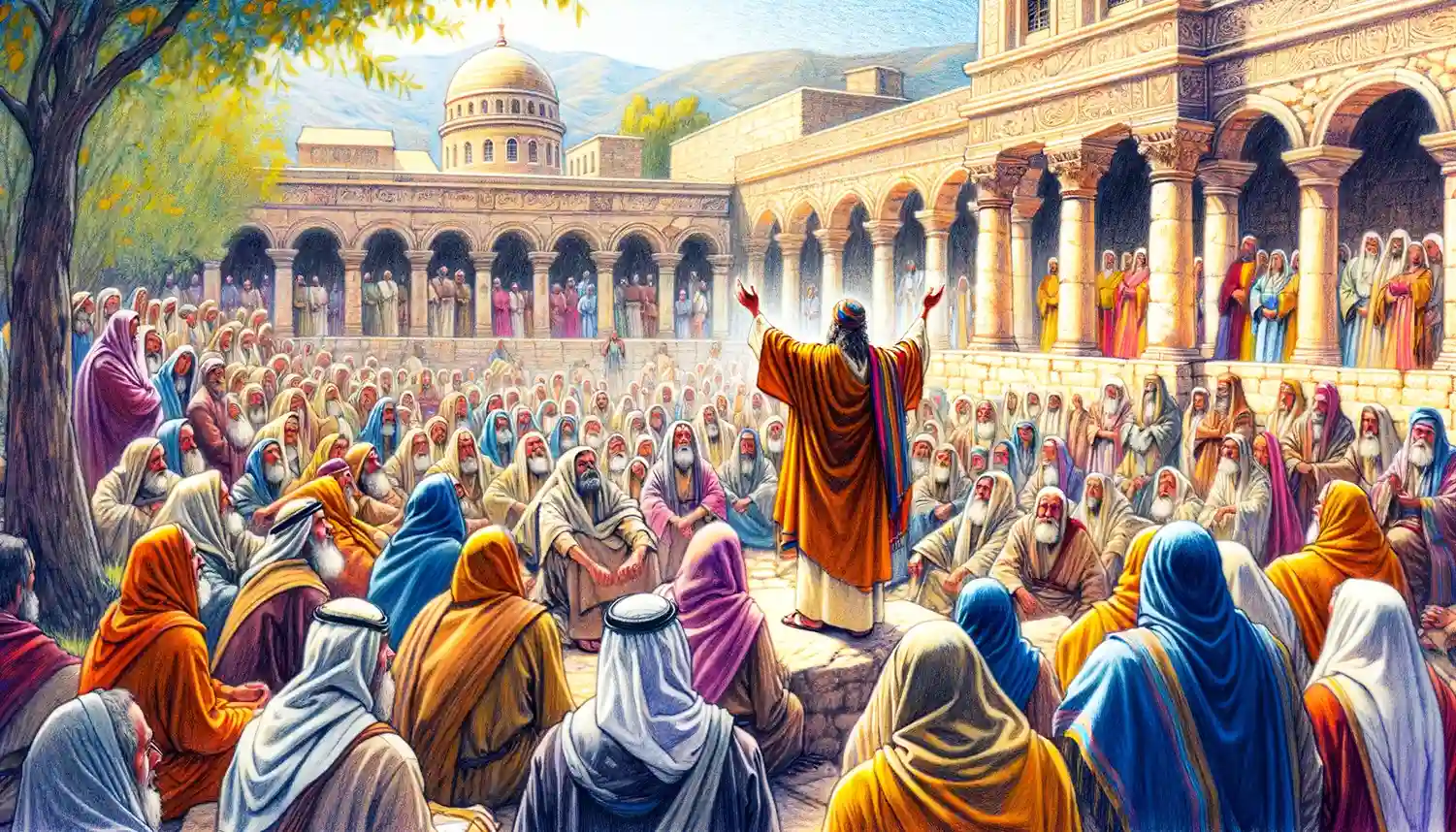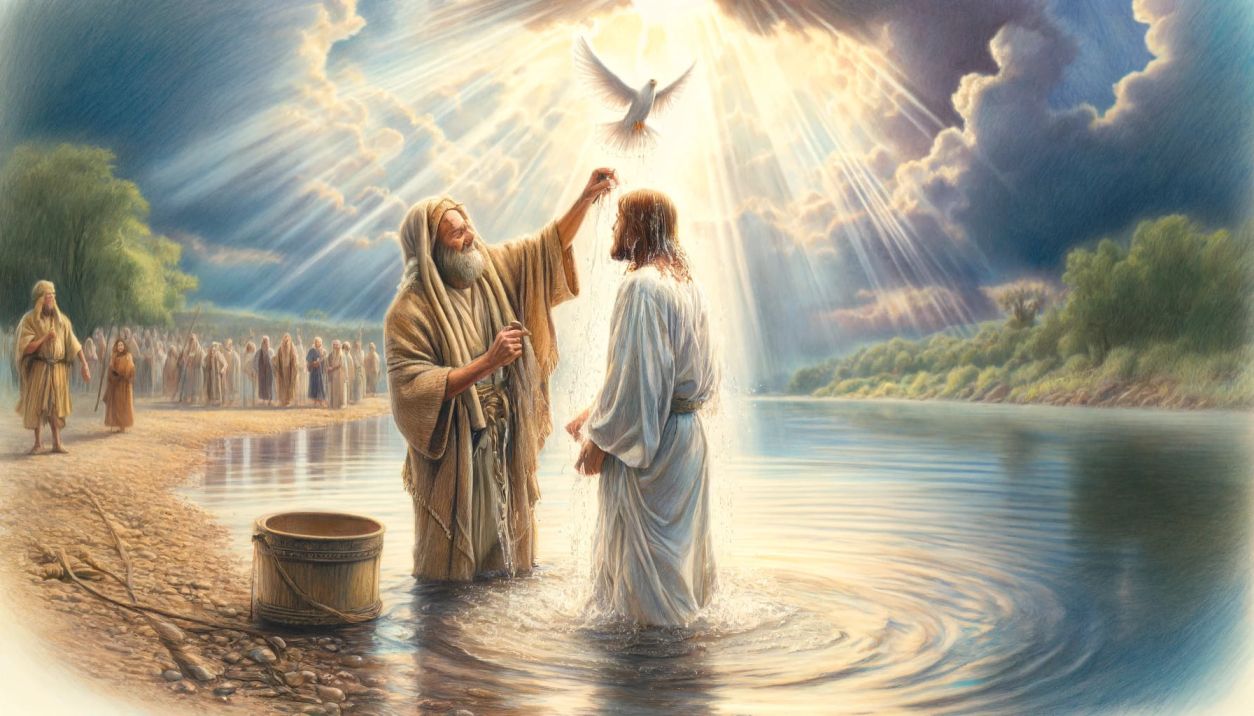Zechariah, a priest in the division of Abijah and husband to Elizabeth, was visited by the angel Gabriel who announced the birth of his son, John the Baptist; despite his initial doubt and subsequent muteness, Zechariah’s faith was affirmed, leading to his prophetic praise upon John’s birth.
Elizabeth, a descendant of Aaron and the wife of Zechariah, is notable for her righteousness and her miraculous conception of John the Baptist in her old age. Her story highlights themes of faith, divine intervention, and prophetic fulfillment.
Infertility in the Bible is depicted through the lives of Sarah, Rebekah, Rachel, Hannah, and Elizabeth, illustrating the profound faith and divine intervention that transformed their struggles into stories of hope and fulfillment.
The River Jordan is a historically and biblically significant river in the Middle East, known primarily as the site of Jesus’ baptism by John the Baptist, symbolizing the commencement of His public ministry and fulfilling Old Testament prophecies.
John the Baptist, the forerunner of Jesus, baptized Him in the Jordan River, heralding His ministry with a message of repentance and preparation for the Kingdom of God, and was later executed by Herod Antipas.
Herod Antipas, the tetrarch of Galilee and Perea, is notorious for ordering the beheading of John the Baptist at the behest of Herodias’s daughter, Salome, and played a part in the trial of Jesus before being exiled to Gaul.
The Gospel of Matthew is rich in theology and Christology, making it a foundational text for understanding Christian doctrine and the narrative of Jesus’ life as both a fulfillment of and a break from Jewish tradition.
The Book of Malachi serves as a poignant reminder of God’s fidelity and the expectations He sets for His followers, paving the way for New Testament teachings and the coming of John the Baptist as the “messenger” foretold in the prophecies.
The baptism of Jesus in the Jordan River by John the Baptist, as detailed in Matthew 3:13-17, encompasses profound theological themes such as obedience, righteousness, the revelation of the Trinity, the affirmation of Jesus’ messianic identity, and the foundational principles of Christian baptism, making it a cornerstone event in Christian theology and the initiation of Jesus’ public ministry.









